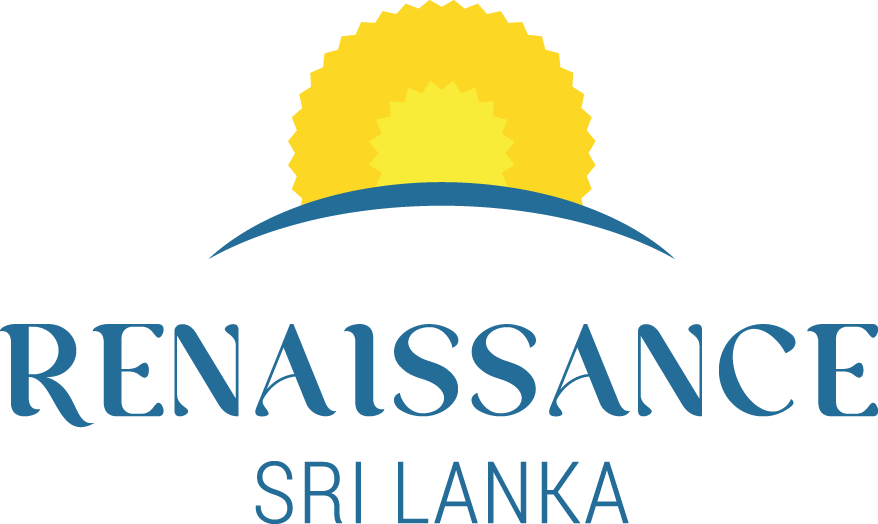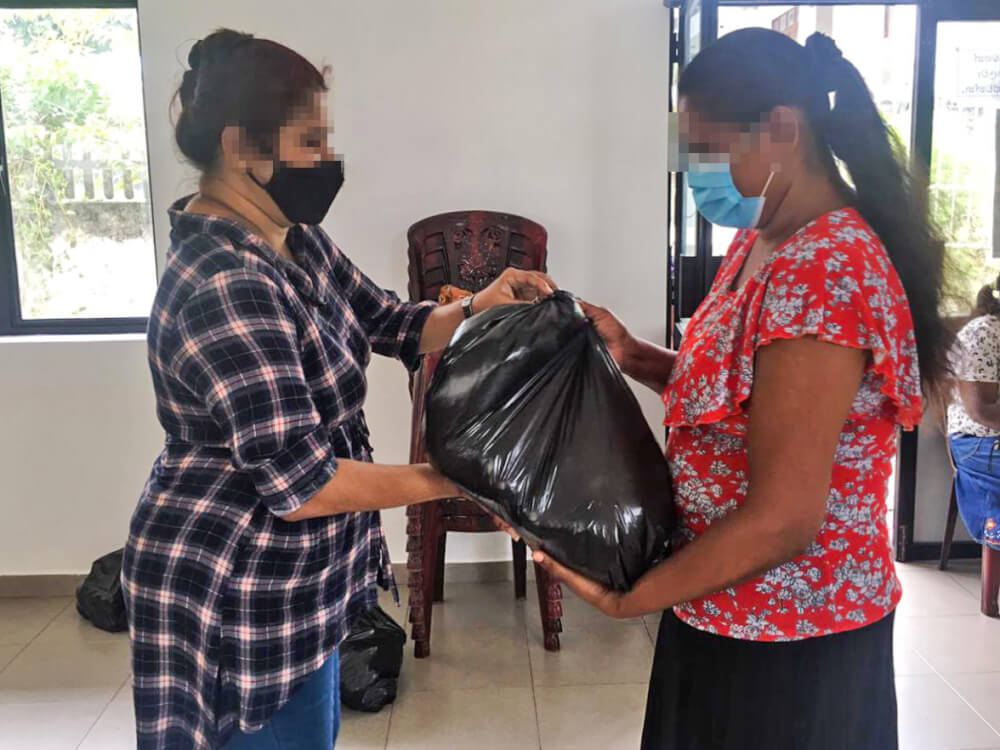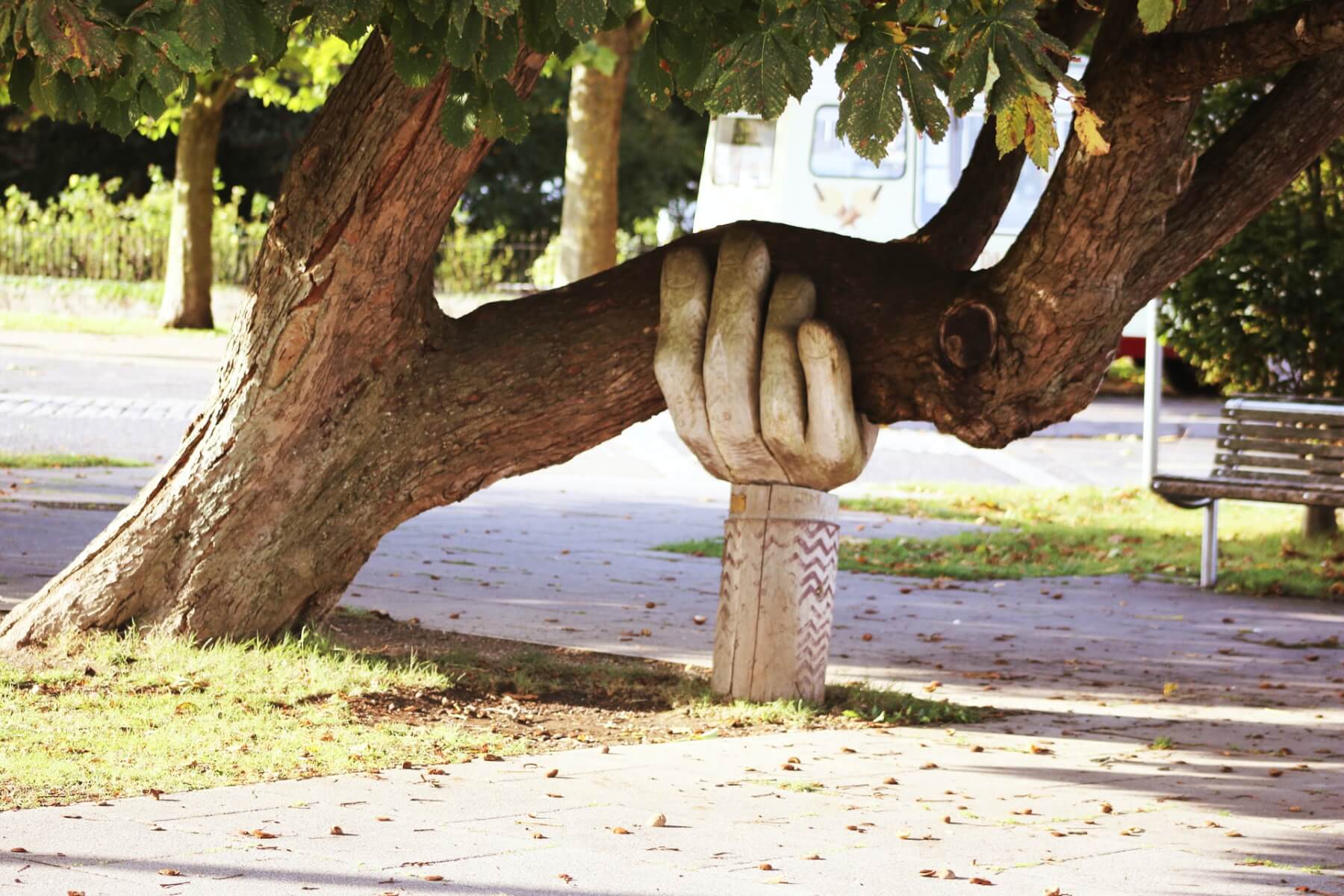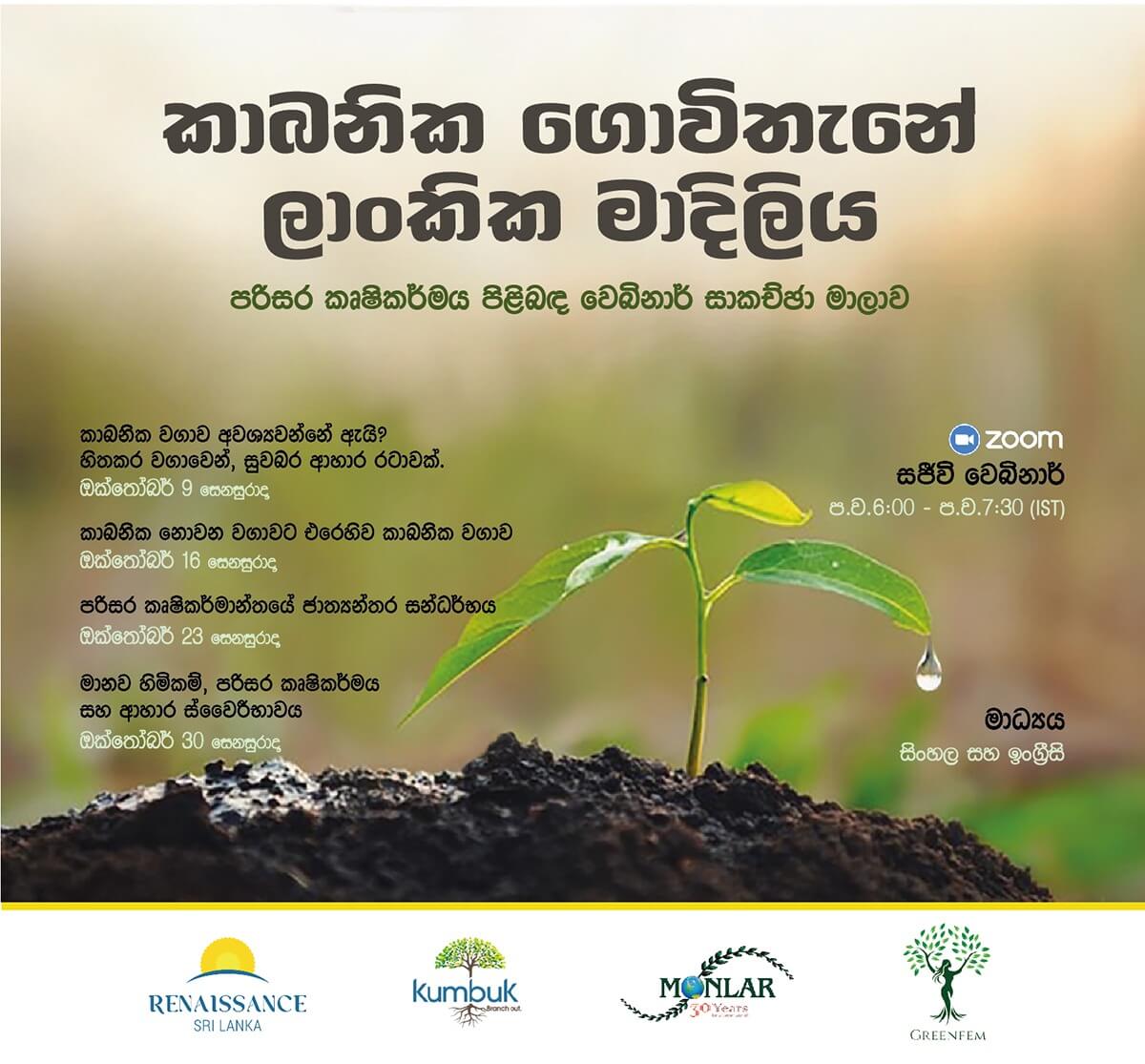Renaissance Sri Lanka helps the hardest hit by the economic Crisis related to the Covid-19 Pandemic
The COVID-19 pandemic has caused unprecedented consequences all over the world. Sri Lanka as a developing country also experienced an adverse impact with the lockdown situation that has affected each social stratum. The impacts of the COVID-19 crisis on Sri Lanka’s economy are already visible. The World Bank predicts Sri Lanka is heading for a major recession, with the economy contracting by up to three per cent in 2020. Seven per cent of the household heads totally lost their employment. Renaissance Sri Lanka’s project for ‘Emergency Food Assistance for Families affected by the COVID – 19 Pandemic’ was initiated to assist the families to mitigate the impacts of the crisis. Renaissance Sri Lanka helps the hardest hit by the economic Crisis related to the Covid-19 Pandemic. The first distribution started in March 2021.
Author: Shelomi Perera
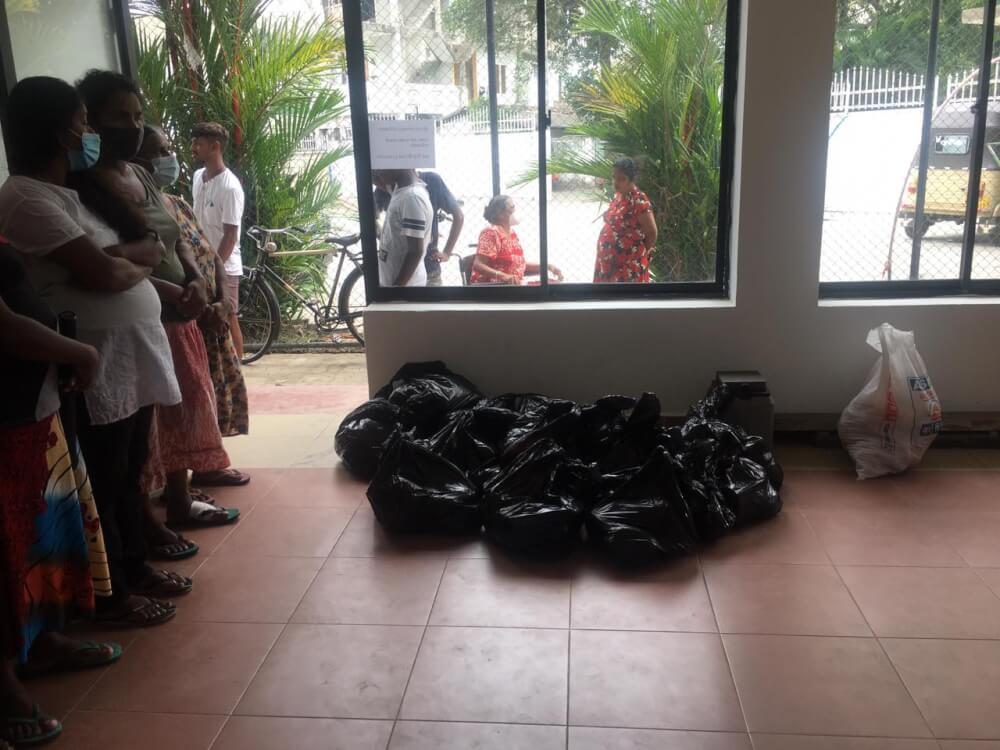
How the COVID 19 pandemic impacted Sri Lanka
The COVID-19 pandemic has triggered unprecedented consequences on the functioning of economies all over the world. Sri Lanka as a developing country also experienced an adverse impact with the lockdown situation and was affected at each social stratum. At the outbreak, all facets of the Sri Lankan economy were hit, from uncertainties on international trade, liquidity shortage, employment loss, to the loss of livelihood of the people engaged in the informal sector.
The direct health impact was comparatively low in Sri Lanka than in the other countries of the world, particularly in Asia. As of 23rd April 2021, there are 99,691 confirmed cases, with 634 fatalities.
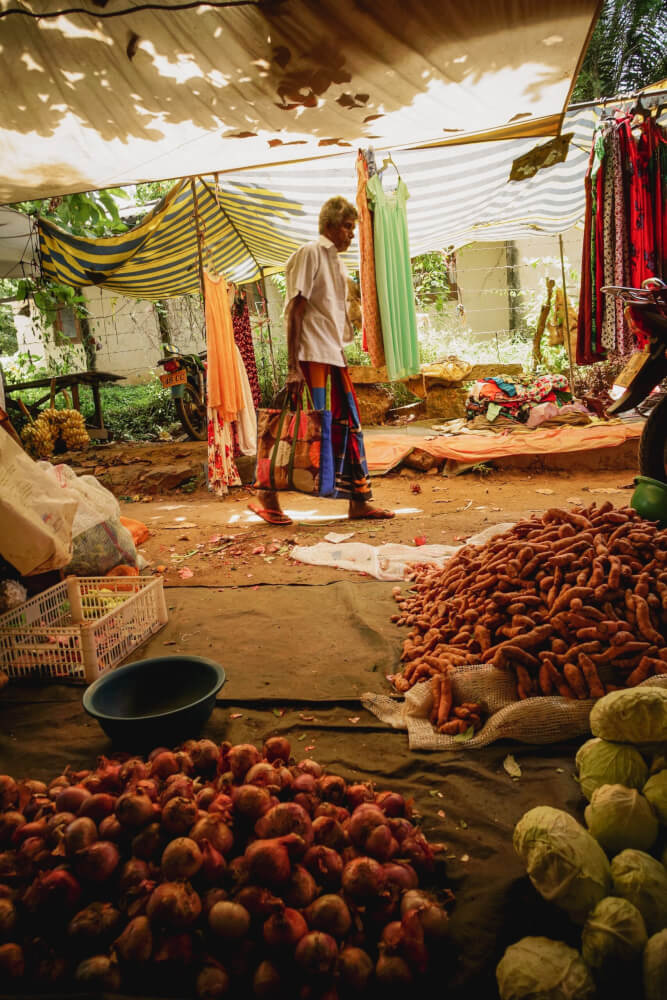
The IMF (2020) estimates that the global economy will contract by three per cent, much worse than during the 2008/09 financial crisis, and estimates will probably be revised down. Sri Lanka’s economy is likely to be hit particularly hard due to a perfect storm of crises: demand for Sri Lanka’s exports has fallen drastically; the tourism industry has collapsed; businesses are finding it more difficult to operate due to the impacts of the curfew and physical distancing measures; remittances are falling rapidly; and, the Rupee has depreciated by 4 per cent since early March 2020, increasing the costs of essential imports and servicing debt held in foreign currencies. Many businesses, across both the formal and informal economies, are in danger of either closing down or slashing their workforces. (UNESCAP 2020)

The hardest hit province in Sri Lanka, is the Western Province, the average income loss has fallen by 33 per cent according to the UN estimates.
The current situation has caused an urgent need to assist the families affected by the economic impact.
Renaissance Sri Lanka’s response to help the hardest hit families
Renaissance Sri Lanka’s project ‘Emergency Food Assistance Project for Families affected by the COVID – 19 related economic crisis’ was initiated to assist the troubled families and to mitigate the impacts of the crisis.
The benefits of the project are significant. They help keep the individuals’ food-security and well-nourishment, so that they are less likely to suffer from ill-health, including from the COVID-19 virus.
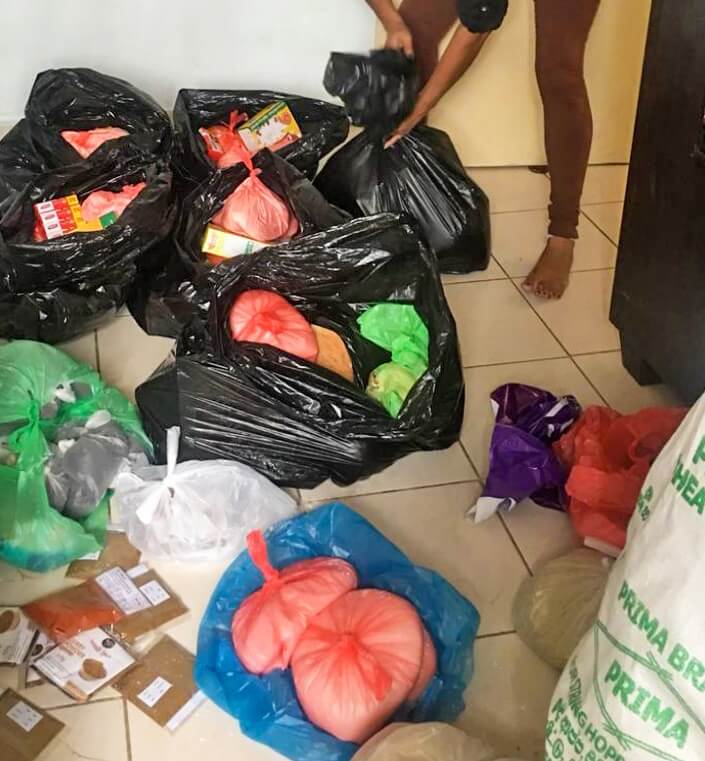
The criteria used to select the families
Reliable Data and information for the selection was taken from the grass-root level government officials, the “Grama Niladhari Officers”.
Thanks to the helpful contributions of the Grama Niladharis, three clusters of recipient families were selected in the first phase of the distribution in March 2021, within the Colombo district according to the severity of the impact.
Recipient families were selected, based on the loss of the primary income of the family affected by the COVID 19 pandemic, their income level, the number of dependent children and the presence of members with disabilities and the elderly.
Renaissance Sri Lanka delivered food packs and helped small-businesses
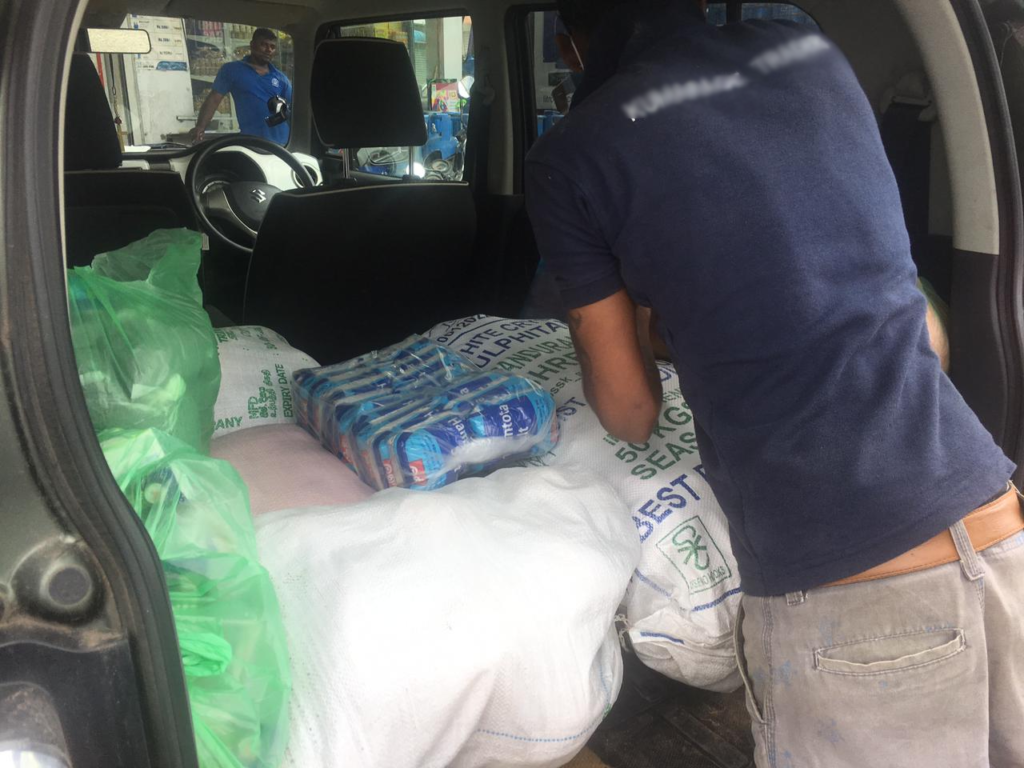
The monthly evolvement was more than effective in terms of the initial scope of the month. The target number of 20 recipient families was increased to 24 families.
The ambition in the coming months, is to increase the distribution to many hundreds of families.
The goods were, in part, purchased directly from producers who had started new small-scale home productions after the pandemic, to alleviate financial difficulties. Renaissance Sri Lanka, therefore contributed to support these families as well.
The Food Packs were distributed in priority to women heads of family
The recipients thoroughly appreciated the receiving of emergency food packs in this moment of hardship at the time of the pandemic. The two Grama Niladhari officers who had engaged in the project in selecting recipients and distributing packs were eager about the success of the project and appreciated the effort. They expressed their interest to engage in future works.
Women head of families being the ones that manage the resources of the households, the food packs were distributed in priority to them.
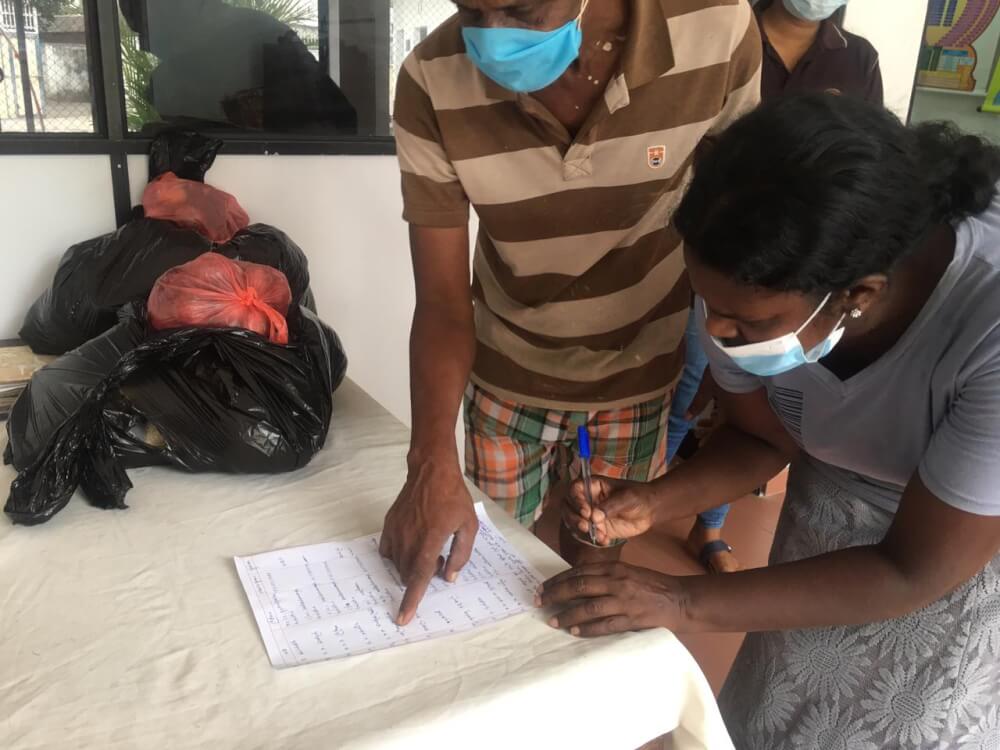
Expanding for self-sustainability of communities
The expectation of the Renaissance Sri Lanka team is in the subsequent step to expand the wings beyond the mere distribution of emergency food packs to direct the communities to a sustainable long-term model of self-sufficiency.
As an introductory and integrating step, we hope to go to the communities all around the country within the months ahead, especially in rural areas, starting with providing a pack of basic items. As a second step, we expect to identify the local resources of regional areas which can develop the self-employment businesses, for example, agriculture, production of spices, fruits, traditional industries and handicrafts.
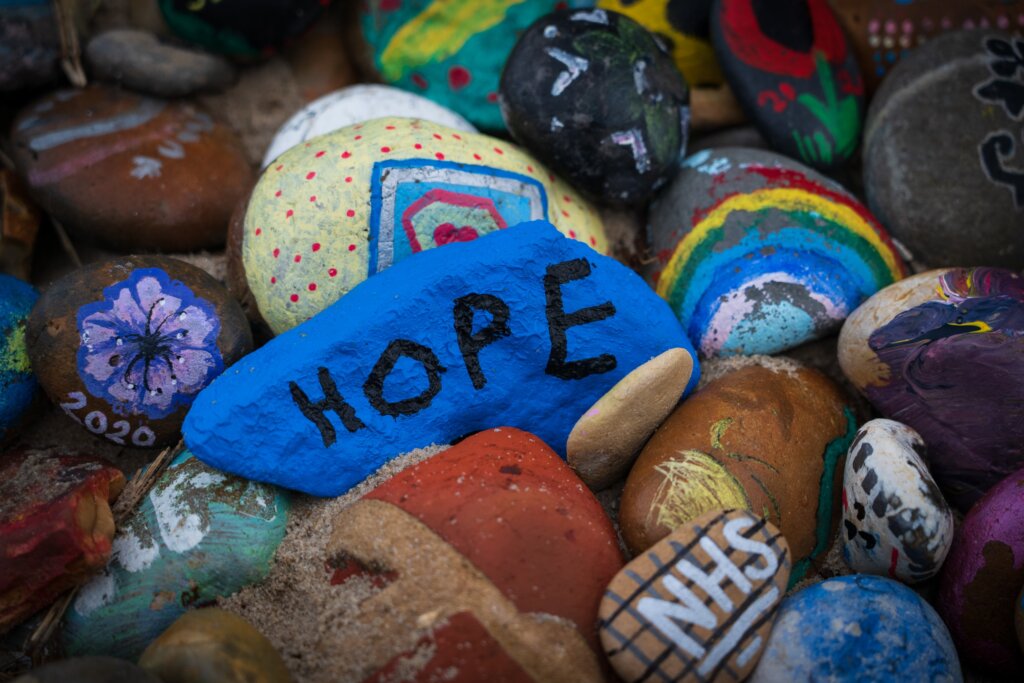
March 2021 Distribution Financial Report
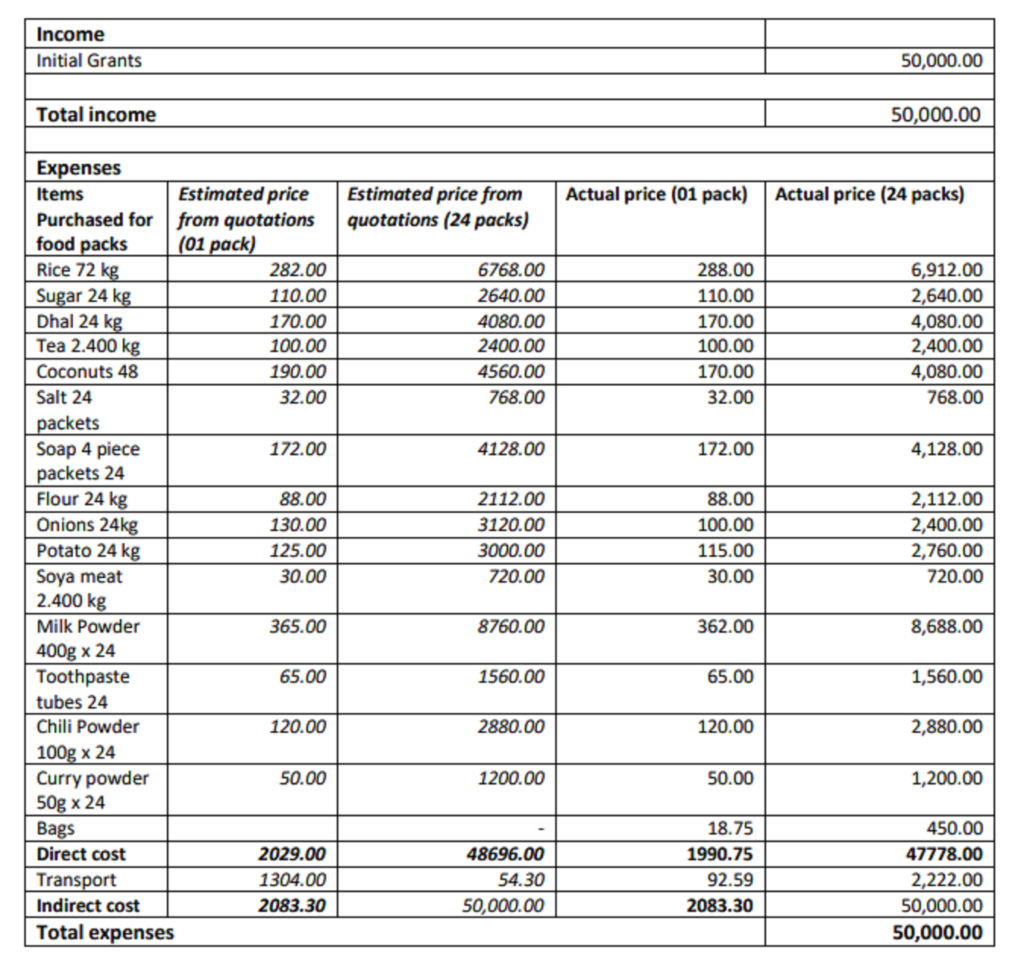
References
https://en.wikipedia.org/wiki/Template:COVID-19_pandemic_data
https://www.imf.org/en/Publications/WEO/Issues/2020/09/30/world-economic-outlook-october-2020
https://www.unescap.org/events/asia-pacific-statistics-week-2020
https://www.unicef.org/srilanka/media/1366/file/UN%20Brief%20Social%20Protection%20Response%20Sri%20Lanka%20Summary.pdf


